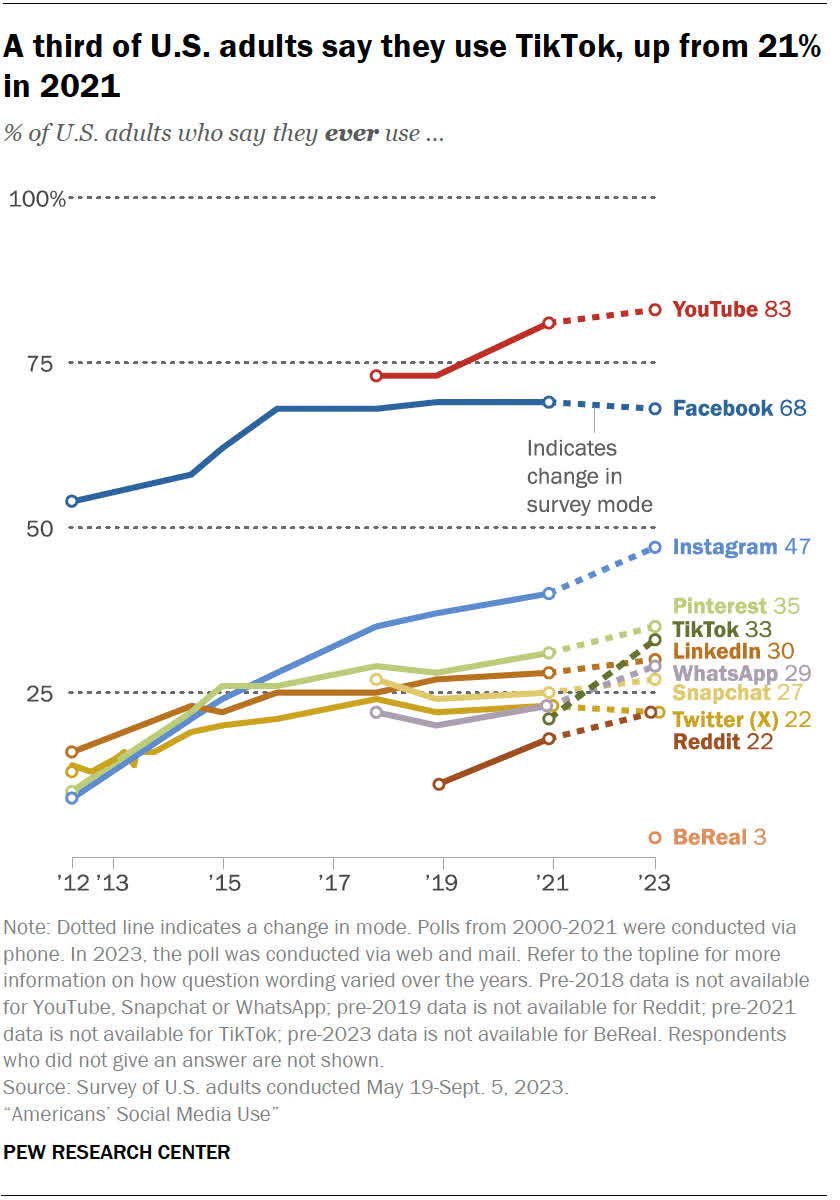
[ad_1]
What just happened? The enormously popular TikTok is once again facing a ban in the US if owner ByteDance fails to sell off the short-form-video app. A group of lawmakers has announced a bill that would force ByteDance to divest TikTok within about five months should it pass, otherwise, the app will be blocked from app stores and web hosting platforms in the US.
The “Protecting Americans from Foreign Adversary Controlled Applications Act,” introduced by Republican chair of the House China committee Mike Gallagher, Ranking Member Raja Krishnamoorthi (D-IL), and 17 lawmakers, defines TikTok as being controlled by a foreign adversary and a threat to national security.
Should the bill pass, ByteDance would have 165 days to divest TikTok to avoid the app being banned. “This is my message to TikTok: break up with the Chinese Communist Party or lose access to your American users,” said Gallagher.
The bill would also require TikTok and other apps to provide users with a copy of their data in a format that can be imported into competing apps. Furthermore, it would pave the way for bans on other “foreign adversary-controlled” apps that Biden deems to be a national security threats.
“This bill is an outright ban of TikTok, no matter how much the authors try to disguise it,” a TikTok spokesperson said in a statement. “This legislation will trample the First Amendment rights of 170 million Americans and deprive 5 million small businesses of a platform they rely on to grow and create jobs.”
TikTok’s alleged ties with Beijing have led to the app being banned by government agencies, not just in the US but also in other countries.
There have been several previous attempts to implement a national US ban on TikTok, none of which succeeded. Former President Trump also tried to force ByteDance to sell TikTok to a US company in 2020 but it came to nothing. President Biden attempted the same thing last year, while Montana was set to introduce its own ban, but a judge blocked the bill on the grounds that it violated the free speech rights of users.
The free speech argument is also being put forward by the American Civil Liberties Union. The group said in a statement that “Just because the bill sponsors claim that banning TikTok isn’t about suppressing speech, there’s no denying that it would do just that.”
Despite concerns about Chinese spying and all the talk of bans, TikTok was found to be the fastest-growing social media platform in the US in January, though YouTube remains the most popular.
[ad_2]
